Japan hope to stage 'unique' Rugby World Cup in 2019
- Published

Almost 25,000 fans turned out for Japan's opening Test defeat by Scotland
We're sitting in a room at the Prince Chichibu Stadium in the Aoyama district of Tokyo, hearing about a woman from Kirkintilloch; a bewildered Irishman (me), a puzzled Scotsman (John Beattie) and, holding court, a former government internal affairs minister, Akira Shimazu - president of the organising committee of the 2019 Rugby World Cup.
The sport's next global event will be held in 12 locations in Japan, from Sapporo City in the north to Kumamoto City in the south and all manner of compelling places in between.
Shimazu is talking about the pressure, and the honour, associated with a leading role in hosting not just Asia's first Rugby World Cup but the first to take place outside of the game's traditional hotbeds.
"Yes, I feel the pressure," says Shimazu. "Especially after the England World Cup was such a great success. Even when the national team failed to make the knockouts, there was a fantastic atmosphere in the country.
"Our challenge, though, is not to try to imitate England but to make a very Japanese World Cup, to identify the things that make us unique. We have three years, but the reality of it all is really sinking in."
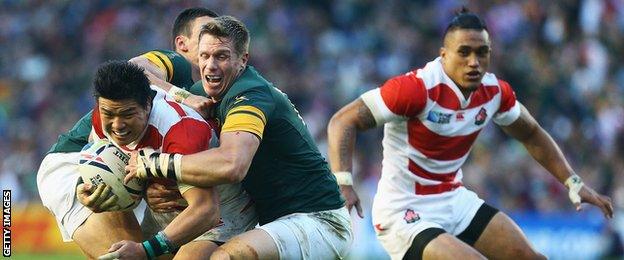
Japan beat South Africa at last year's World Cup in England
Scottish links
This woman from Kirkintilloch, this surreal departure from the Land of the Rising Sun to the village in East Dunbartonshire, is Shimazu's idea. He mentions that Japanese people, in the past few years, have come to have a greater understanding of Scotland through a programme that ran on the NHK channel, a mini-series - 15 minutes from 08:00 six days a week - that brought in upwards of 20 million viewers per show during its 150 episodes that ran from September 2014 to March 2015.
It was a drama called 'Massan', based on the real-life story of Masataka Taketsuru, an heir to a liquor store with a passion for making whisky, and his wife Jessie Roberta Cowan, a doctor's daughter from Kirkintilloch. "It was a dramatisation of their lives and it was very famous in Japan," says Shimazu.
2019 Rugby World Cup |
|---|
Twenty teams will feature, including eight qualifiers |
Japan and Scotland among 12 sides already qualified |
Twelve venues across the country will host matches |
He tells the tale of Taketsuru leaving Japan for Glasgow in 1918 in pursuit of knowledge about the whisky industry. He enrolled on a course at Glasgow University and fell in love with the daughter of the family he was staying with - Jessie, who was known as Rita.
Taketsuru learned about whisky on visits to distilleries in Speyside and Campbeltown. He married Rita in a registry office in Glasgow in January 1920.
"And then they came to Japan and created Nikka Whisky, which is still very popular today, 100 years later," explains Shimazu. "They set up their distillery in Hokkaido [Japan's northernmost island]. That's close to Sapporo, a host venue for the World Cup.
"Even during World War II, Rita stayed there. Her husband asked if she wanted to go home, but she stayed. Maybe Scotland and their fans should base themselves in Sapporo in 2019 and taste the Nikka Whisky that one of their own people helped create."
Taketsuru - known as Massan - is remembered as the father of Japanese Whisky - a vastly successful industry - and Rita is known as its mother. "Through this programme we learned about Scottish culture," says Shimazu.
Ticketing concerns
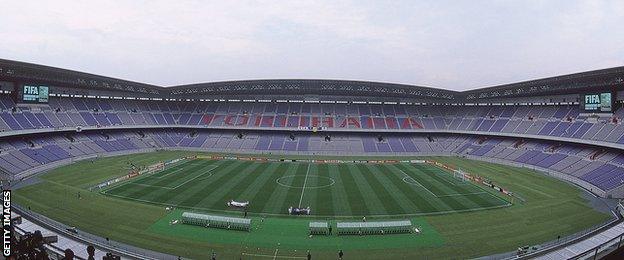
International Yokohama Stadium is one of the venues for the 2019 Rugby World Cup
There are many other things he has had to learn about in the role he has held for two years, his appointment coming largely because of his knowledge of how local government works in Japan.
"We have 12 host venues but we actually have 19 local governments covering those 12 venues," he says. "I've 40 years' experience working in that world."
A World Cup in Japan is by turns exciting and challenging. From the 72,327 capacity at the International Yokohama Stadium - where the 2002 football World Cup final was held and where the rugby equivalent will be staged in 2019 - to the 16,187 capacity in Kamaishi City, the 12 host grounds have a total average capacity of 37,888, which is almost 10,000 less than England in 2015 but almost 9,500 higher, per ground, than the New Zealand World Cup in 2011.
That's an awful lot of tickets to sell. True, there are 126 million people living here but this country is one of rugby union's newborns in the grand scheme of things.
Fewer than 25,000 turned up at the Toyota Stadium - capacity 45,000 - last Saturday to watch the Brave Blossoms lose 26-13 to Scotland. On top of that, there is competition from the Olympics that will take place in Tokyo less than a year after the World Cup.
Shimazu and his team wanted the ticket-selling process up and running by the end of this year, but that's not going to happen. Some of the leading rugby nations were successful in their bid to have the draw put back until May 2017. "We'd like to sell our tickets as early as we can," he says.
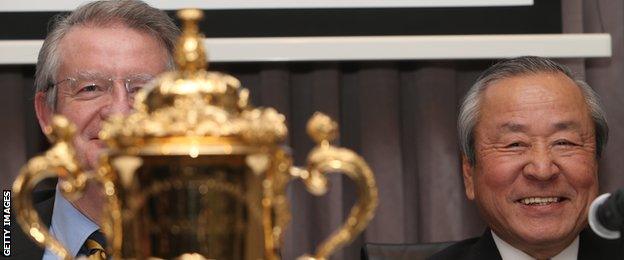
Shimazu at last year's announcement of the venues for the World Cup
"There are lots of infrastructural advantages of having the Olympics straight after the World Cup, but one small worry is that one of our stadiums in Tokyo is also hosting the Olympic sevens so we're concerned that some Japanese people, who don't know much about rugby but would like to come and watch, may be confused about tickets for the 15-a-side games and the sevens games.
"The quicker we know who is playing where, the better chance we have of getting our plans in place.
"There are other challenges. Accommodation is a big challenge, but hotels are under construction. There's also a higher expectation amongst the people of Japan after the team did so well in England. Maybe we'll be drawn against Scotland again, like in England. Of course, next time we'll win."
It's said as a joke, but you wouldn't doubt them. The hosts will stage a hell of a party - and they're not intending to bow out early.
- Published21 June 2016
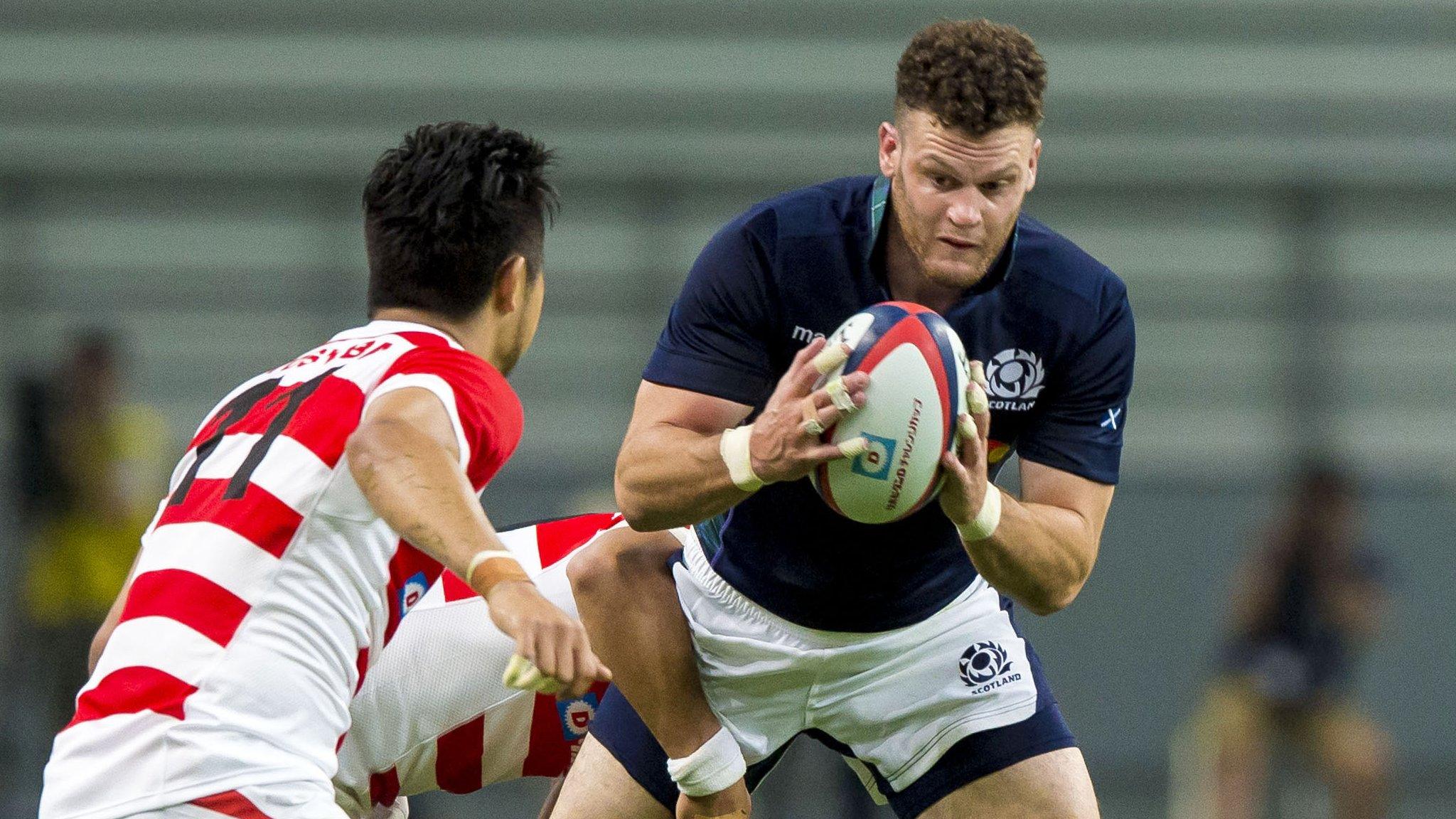
- Published20 June 2016
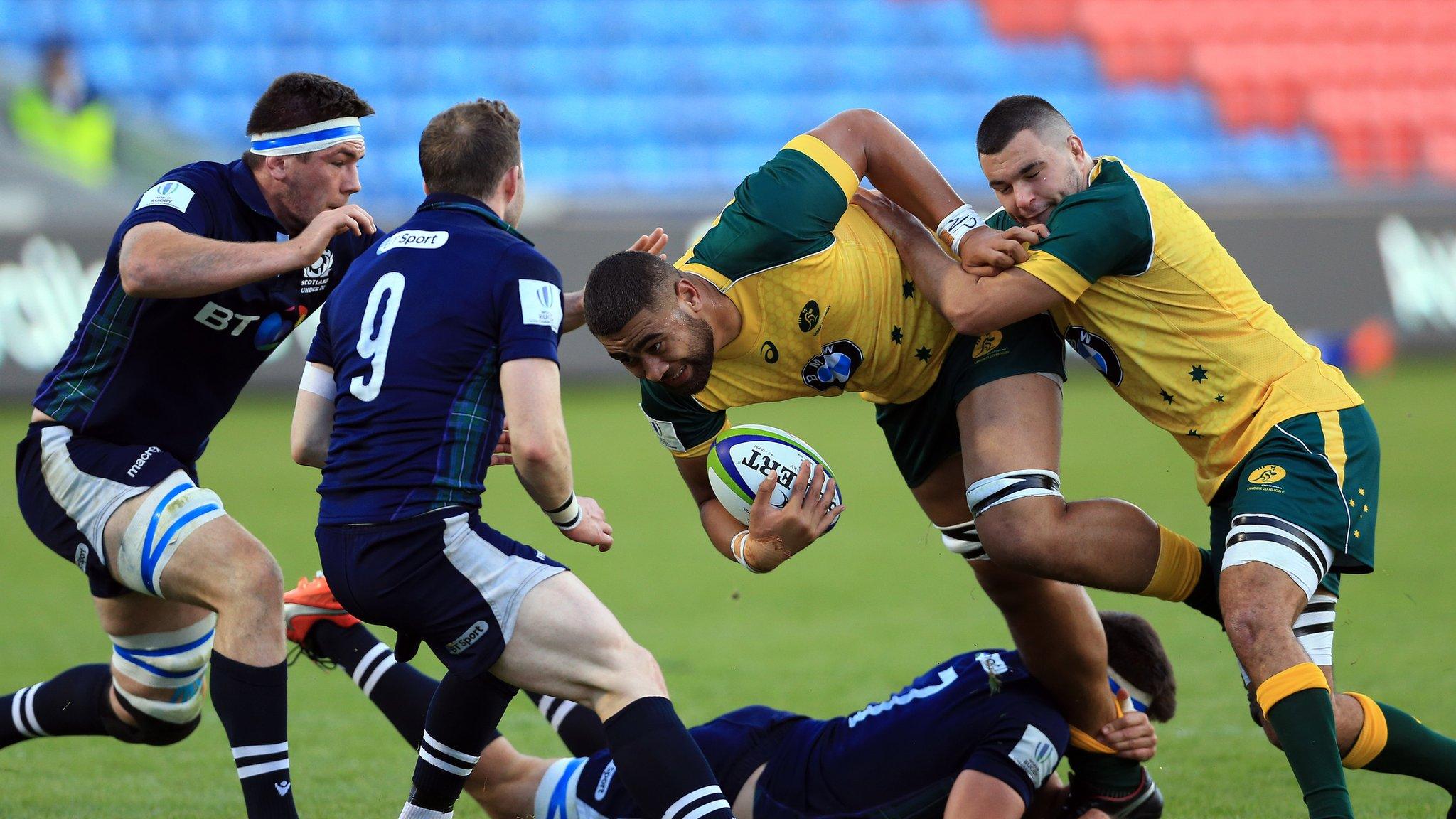
- Published19 June 2016
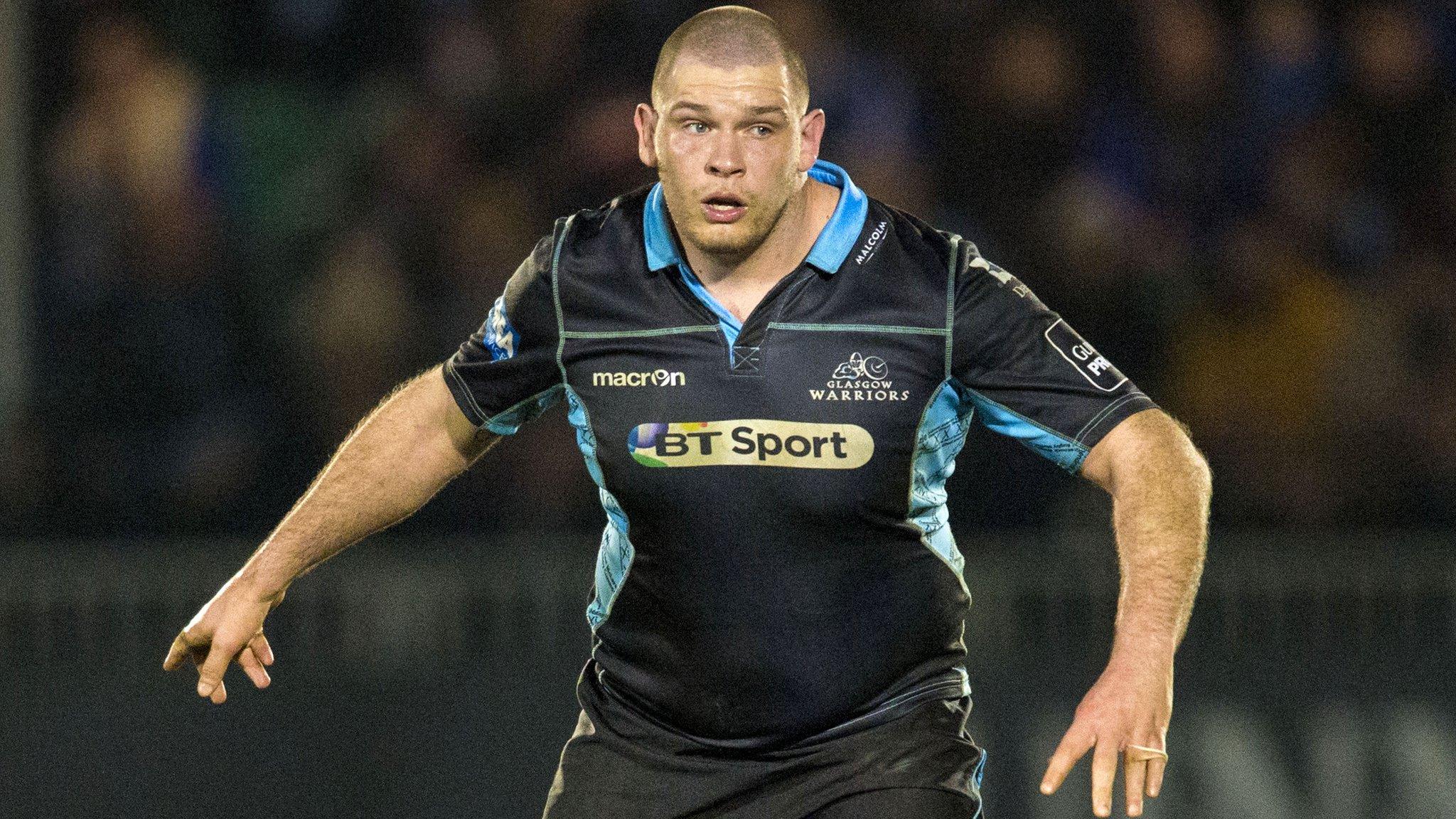
- Published14 September 2016
